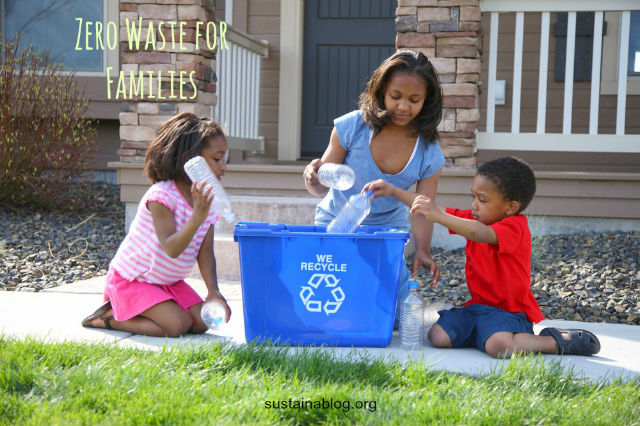We are creating waste at an alarming rate, and most of us aren’t even aware of it. On a given day, if you drink your morning coffee from a paper cup, have water from a plastic bottle at lunchtime, and use a few napkins and straw with a cocktail during dinner, you could produce a lot of waste with your beverages alone. The Environmental Protection Agency (EPA) estimates the average person produces about four pounds of trash daily. But there are some who are going against the status quo of being wasteful.
For example, New Yorker Lauren Singer has only made enough trash to fill up a single mason jar in the past two years. The 23-year-old shares on her blog Trash is for Tossers that she avoids excessive and unnecessary packaging by making many of her own cleaning and beauty products. Who really needs their toothpaste in a pretty box? Lauren also explains how buying in bulk and shopping at farmers’ markets helps her to produce less trash. She writes that it’s important to continuously evaluate how many things you really need and steadily make improvements to cut out the junk.
While these ideas are useful for anyone wanting to live more eco-friendly, being a parent I wanted to find out how similar practices could be explained to children. After all, little ones learn from our examples. Continue reading to the next section to find out how one woman is helping her sons learn that less is better.
Get the Kids On Board with Your Zero-Waste Plans
Bea Johnson, wife, mother of two and author, teaches families how to accumulate less waste by following the 5Rs: Refuse, Reduce, Reuse, Recycle, and Rot (compost). She insists there can be no exceptions or reordering to the list. On her website, Zero Waste Home, she includes a special section just for children to learn how reducing waste easily can be a part of their lives. Try out some of these suggestions in your family and see if living with less trash is right for you. Here are five of my favorite ideas from Bea’s list:
- Explain Why You’ve Chosen This Lifestyle for Your Family: Bea writes that explaining to her children that, at times, they may have to say “no” to accepting party favors at parties and school has been “difficult but manageable.” She advises parents to have an open and honest conversation with their children. You also may consider using books, movies and the Internet to explain to your kids the consequences of wastefulness.
- Don’t Be a Party Pooper: Encourage children to buy friends and/or loved ones gently used, secondhand gifts or older children to give experiences. Going to a restaurant or trying indoor rock climbing may be as, if not more, exciting than receiving a gift. When you are hosting the party, skip on plastic utensils, napkins, cupcake liners, cups and paper plates.
- Let Children Join In: Even though it may be stressful at times, take little ones shopping with you to show them how and where to buy items that best suits your family’s lifestyle choice.
- Enjoy Waste-Free Entertainment: Take your kids to the library to borrow books and movies, go on a hike together and most importantly, spending quality time together is priceless and produces no trash.
- School Doesn’t Have to Wasteful: At the start of a new school year, talk with your child(ren)’s teacher to request less papers be sent home. Let them know you’ll only like to receive the more important notices. Simply and reuse lunch containers. Consider purchasing cloth tote bags for snacks and refillable drink containers.
What other ideas do you have to help children learn to create less waste? Which resources do you use to you help your children learn the importance of reducing your family’s trash?
Image credit: Shutterstock


Melany Hopes
More that incredible advices! i think that it is very important to teach our children how to recycle and which ingredients are bad for them and for the environment. I have five-year-old daughter and I am teaching her every single way how to recycle and how to appreciate everything in the nature!
Melany Hops